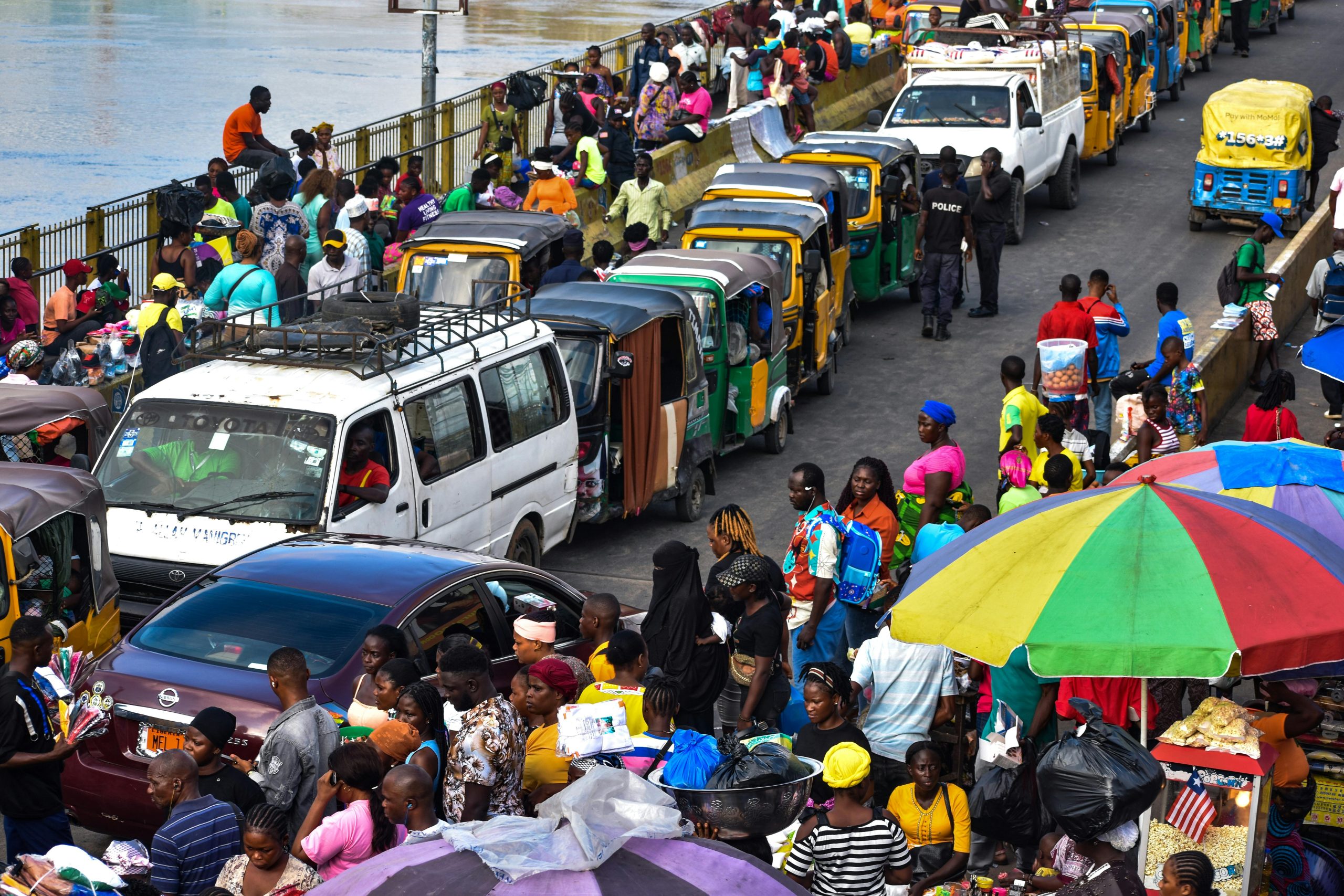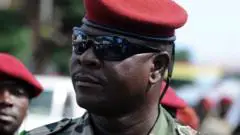In a dramatic twist in one of Guinea’s most painful chapters, Claude Pivi, a former senior military officer convicted in absentia for his role in the infamous 2009 stadium massacre in Conakry, has been extradited from Liberia. The arrest and extradition, which also involved his son, Verny Pivi, mark a significant moment in Guinea’s long struggle with justice and accountability for past atrocities.
The incident that Claude Pivi is implicated in—commonly referred to as the 2009 Conakry Stadium Massacre—remains one of the darkest days in the nation’s history. On September 28, 2009, more than 150 opposition supporters were killed, and dozens of women were raped, when soldiers opened fire at a peaceful political rally demanding a return to civilian rule. The massacre took place at Conakry’s main stadium, Stade du 28 September and its brutal aftermath left deep scars on Guinea’s national psyche. Now, after years on the run, one of the key figures in that violence has been brought back to face justice.
The Extradition of Claude Pivi
Claude Pivi, known by his military nickname “Coplan,” once held a prominent position as the minister of presidential security during the regime of former Guinean leader Moussa Dadis Camara, who was himself imprisoned for crimes against humanity related to the massacre. After escaping from a Guinean prison in November 2023, Pivi had been on the run for months, managing to evade capture and crossing into neighboring Liberia.
On Tuesday, during what officials described as a routine security check near the Guinea-Liberia border, Pivi and his son, Verny Pivi, were arrested. Liberian security forces extradited both men to Guinea. Photos of the arrests, circulating widely on social media, showed a frail-looking Pivi, handcuffed beside his son, who is accused of orchestrating his father’s prison break. The capture of Pivi, after months of manhunts, has been met with both relief and renewed pain for survivors and families of the victims of the 2009 massacre.
Colonel Aly Camara, Guinea’s military prosecutor, confirmed that Pivi had been transferred back to the main prison in Conakry to serve out his life sentence. “He was brought back to the central prison to serve his sentence under the law,” Col Camara said in a statement. However, Pivi’s lawyer, Abdourahmane Dabo, raised questions by stating that he had been unable to locate his client at the prison, adding a layer of mystery to the already tense situation.

A Nation’s Wounds: The 2009 Massacre
The 2009 massacre remains a pivotal moment in Guinea’s modern history. On that fateful September day, thousands of opposition supporters had gathered at the Conakry stadium to demand a return to civilian rule after years of political instability. The atmosphere was charged but peaceful. Protesters waved flags, sang songs, and demanded an end to military rule under Moussa Dadis Camara, who had seized power in a coup following the death of longtime dictator Lansana Conté.
What unfolded next shocked the nation and the world. Soldiers under the command of Camara’s regime stormed the stadium and opened fire on the unarmed crowd. The scene quickly turned into a bloodbath as panicked civilians tried to flee. Over 156 people were killed, according to reports, and scores of women were subjected to brutal sexual violence. The violence continued outside the stadium, as opposition members were rounded up, tortured, and arbitrarily detained.
International human rights organizations condemned the violence, and a United Nations investigation concluded that the massacre could be classified as crime against humanity. Moussa Dadis Camara was eventually ousted from power following an assassination attempt in December 2009, but justice for the victims has been slow, sporadic, and incomplete.
Moussa Dadis Camara: A Fragile Justice System
Moussa Dadis Camara, who led the military junta from 2008 to 2009, was also implicated in the stadium massacre. After the events of September 28, 2009, and the failed assassination attempt, he fled Guinea, spending years in exile. He was arrested upon his return to Guinea in 2015 and later sentenced to 20 years in prison for crimes against humanity. His role in the massacre, as well as his regime’s heavy-handed repression of opposition forces, marked him as a key player in Guinea’s descent into political violence during that period.
Camara’s conviction was hailed as a breakthrough for justice in a country where military and political elites often escaped accountability. However, even as the legal process moved forward, it faced considerable challenges, from allegations of political interference to delays in trial proceedings. The extradition of Claude Pivi, a senior figure in Camara’s regime, could be seen as a test for Guinea’s judicial system. Will the system hold its ground and ensure that figures responsible for atrocities are held to account, or will the old patterns of impunity prevail?
The Role of Claude Pivi: From Presidential Security to Massacre
Claude Pivi’s role in the 2009 massacre has long been a subject of investigation and controversy. As the head of presidential security, he wielded significant power within the regime, overseeing elite military forces and ensuring the safety of the junta leadership. His nickname, “Coplan,” was synonymous with military brutality, and his close ties to Camara made him one of the regime’s most feared figures.
Although Pivi has denied direct involvement in the stadium massacre, multiple witnesses and survivors have implicated him in the planning and execution of the violent crackdown. His conviction in absentia reinforced the belief that he played a key role in unleashing the soldiers on the civilian protestors that day. Despite his claims of innocence, few doubt that he was aware of, if not complicit in, the violence that took place.
Human rights advocates have long pushed for Pivi to face trial in person, arguing that justice cannot be fully served in absentia. His extradition presents an opportunity for Guinea’s legal system to finally confront one of its most notorious figures, offering a glimmer of hope to the victims and their families.
Hope for the Victims: Reactions to Pivi’s Extradition
For the survivors of the 2009 massacre and the families of those who were killed, Claude Pivi’s arrest and extradition bring mixed emotions. For many, the pain of that day still feels fresh, and the struggle for justice has been long and arduous. Yet, there is also a sense of relief that one of the key figures in the massacre is finally back in Guinea and custody.
One survivor, Fatoumata Diariou Camara, expressed her relief to the AFP news agency. “I am overjoyed that he has been recaptured,” she said. “I pray that he will remain in prison forever.” Fatoumata, like many others who attended the rally that day, was caught up in the violence and has spent years grappling with its aftermath. Her words reflect the longing for closure and justice that many survivors feel.
However, there is also skepticism about whether Pivi’s return will lead to any meaningful change. Guinea’s judicial system, though it has made strides, is still seen by some as vulnerable to political manipulation. The fact that Pivi escaped prison in the first place only reinforces these concerns. Will the system ensure that he serves his full sentence, or will there be another escape, another loophole that allows him to evade justice once more?
The Path Forward: Guinea’s Struggle with Accountability
Claude Pivi’s extradition is not just a legal event; it is a symbol of Guinea’s broader struggle with accountability. The country, like many others that have experienced political violence, is trying to reconcile with its past while building a more stable and democratic future. The 2009 massacre was a defining moment, but it was also part of a larger pattern of impunity for military and political elites.
In the years since the massacre, Guinea has seen some progress in terms of human rights and political stability, but challenges remain. The trial of figures like Pivi and Camara is an important step, but justice cannot stop at individual convictions. There must be a broader reckoning with the culture of impunity that allowed such atrocities to take place in the first place.

For Guinea, the path forward involves not only holding perpetrators accountable but also addressing the deep-seated inequalities and political divisions that fuel violence. The survivors of the stadium massacre, and the country as a whole, deserve more than just symbolic justice. They deserve a nation where the rule of law prevails, where leaders are held accountable for their actions, and where such a tragedy never happens again.
A Moment of Reckoning
The extradition of Claude Pivi is a significant moment in Guinea’s journey toward justice, but it is far from the end. The country now faces a crucial test: will it ensure that Pivi serves his sentence and that justice is delivered for the victims of the 2009 massacre? Or will political interference and institutional weaknesses undermine this moment of accountability?
As Guinea reflects on its past and looks to its future, the story of Claude Pivi—and the tragedy of the 2009 stadium massacre—remains a stark reminder of the costs of impunity and the importance of justice. For the victims, their families, and the nation as a whole, this is a moment of reckoning that will shape Guinea’s future for years to come.



